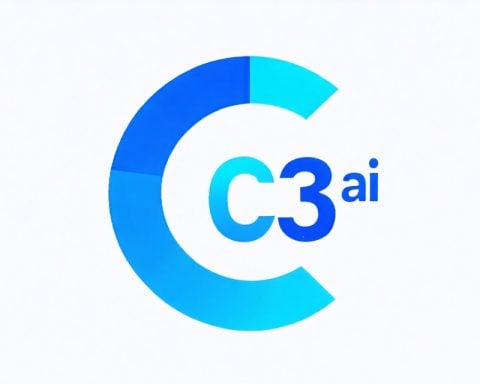Overview
In a dramatic reaction to new export limits imposed by the Biden administration, Nvidia has voiced strong disapproval while simultaneously praising President-elect Donald Trump. The recent move by the White House aims to regulate AI technology exports, particularly targeting Nvidia’s influential chips amid growing tensions concerning China’s access to American-made technology.
Key Details
President Biden’s announcement comes as a significant shift in policy, aiming to restrict advanced AI chip sales to “countries of concern.” This decision is intended to counteract fears surrounding China’s utilization of US-developed AI systems.
For Nvidia, these export controls could present a significant hurdle, especially since a substantial portion of its revenue—over 50%—comes from international markets, with China alone contributing $5.4 billion in its last financial quarter.
In response to these developments, Nvidia’s vice president of government affairs articulated concerns that the new regulations could diminish the U.S.’s competitive position in the global market. He suggested that such measures are an attempt to manipulate market dynamics and suppress technological progress.
Moreover, the statement hinted at Nvidia’s nostalgia for the regulatory framework of the Trump era, believing it fostered conditions that spurred the current AI boom.
Market Reaction
Nvidia’s stock took a hit, falling by nearly 5% as the company grapples with the implications of governmental trade policies. The broader tech market reflected similar struggles, indicating a turbulent period ahead for Silicon Valley giants. Nvidia’s stock performance had previously soared under Biden, showcasing the complex interplay of politics and technology in today’s economy.
Export Controls and the Future of AI Technology
In light of recent export limitations introduced by the Biden administration, the tech industry faces significant challenges that reverberate through multiple facets of society, the economy, and the environment. The regulations, specifically targeting advanced AI chip sales, particularly those produced by Nvidia, stem from rising geopolitical tensions between the U.S. and China regarding technology transfer and security. This move reveals a deeper narrative about the future of AI technology and its comprehensive implications for humanity.
The export restrictions are primarily motivated by concerns over national security, aimed at preventing adversarial nations from harnessing sophisticated AI capabilities that could contribute to military enhancements or authoritarian surveillance systems. However, these limitations bring forth a cascade of consequences that extend beyond immediate political calculations.
Impact on Humanity and Technology Development
The intersection of technology and national regulation raises a profound question about the stewardship of AI development. While the intention of export controls is to safeguard U.S. interests, limiting access to AI technology could stifle global collaboration, thereby hampering critical advancements that could address pressing global issues like climate change, healthcare, and poverty. Innovations in AI hold the potential to revolutionize these sectors—improving energy efficiency, enhancing disease prediction and management, and offering tailored solutions for economic disparity.
Moreover, with major players like Nvidia expressing concerns that the new regulations may diminish the U.S.’s competitive advantage in AI, this could culminate in an environment where technological advancements are unevenly distributed. Such disparities could potentially lead to a tech divide, where only a few nations with access to cutting-edge technologies can drive substantial progress, leaving others behind.
Economic Repercussions and Global Market Dynamics
Economically, the constraints placed on companies like Nvidia signal a turbulent shift in the technological landscape. The company’s revenue heavily relies on international markets, particularly China, which underlines the global entanglements of today’s tech economy. The recent 5% decline in Nvidia’s stock exemplifies how governmental policies can create immediate volatility in the market.
Additionally, the broader tech sector may experience a ripple effect as firms reassess their strategies in response to changing regulations. If U.S. companies are restricted from exporting AI products, alternative markets may arise, potentially leading to a rise in tech industries within other regions, such as Europe or Southeast Asia. This shift could redefine the dynamics of global competition, influencing where and how innovation occurs.
Environmental Considerations
AI technology also has implications for the environment. Advanced AI systems can optimize resource use, reduce waste, and improve environmental monitoring, thus providing tools for sustainability. Restricting the export of these vital technologies may hinder global efforts to combat climate change.
The future of humanity is deeply intertwined with how we navigate these complex relationships between technological advancement, regulatory measures, and geopolitical tensions. As nations continue to jockey for technological supremacy, the path forward will require balancing the need for security with the undeniable advantages of global collaboration in addressing existential challenges that transcend borders.
In conclusion, while export controls may currently seem like a safeguard for national interests, they also pose substantial risks to the collective progress of humanity. The implications stretch far beyond immediate trade concerns, impacting the trajectory of technological development and, ultimately, the future we create for generations to come. The outcome of these policies will influence not only the tech industry but also the broader narrative of how we harness technology in pursuit of a sustainable and equitable world.
Shifting Sands: Nvidia’s Response to Biden’s Export Controls and Market Implications
Overview
Nvidia, a dominant player in the semiconductor industry, recently expressed strong reactions to new export restrictions imposed by the Biden administration on AI technology. This policy, which seeks to regulate the sale of advanced AI chips to “countries of concern,” particularly targets the company’s technologies amidst escalating concerns about China’s access to American technology.
Background on Export Controls
The Biden administration’s decision to restrict exports of advanced AI chips is part of a larger strategy to curb potential risks associated with national security and technological dominance. This regulation targets key markets for Nvidia, which has historically derived over 50% of its revenue from international sales, with China being a substantial contributor, accounting for approximately $5.4 billion in revenue in the latest financial quarter.
Implications for Nvidia
The restrictions pose a significant hurdle for Nvidia. The company’s vice president of government affairs has articulated concerns that these new regulations may hinder U.S. competitiveness in the global tech landscape. This sentiment highlights the balancing act between maintaining national security and fostering innovation—a central theme in discussions around tech policy.
Market Trends and Reactions
Following the export control announcement, Nvidia’s stock price experienced a decline of nearly 5%. This dip is reflective of broader trends within the tech sector, illustrating the vulnerability of Silicon Valley companies in the face of changing geopolitical dynamics. The stock had previously benefited from Biden’s economic policies, which had helped fuel a tech boom, showcasing the complicated relationship between governmental actions and market performance.
Pros and Cons of Current Regulations
Pros:
– National Security: The restrictions aim to protect vital interests by preventing advanced technology from potentially benefiting adversarial nations.
– Encourages Domestic Development: By limiting exports, the U.S. may foster the growth of its domestic tech sector without external competition.
Cons:
– Market Uncertainty: Export controls can create unpredictability in revenue streams for companies like Nvidia, impacting stock performance and investment strategies.
– Innovation Stifling: There is concern that overly restrictive regulations could hinder technological advancement and the global competitiveness of American tech firms.
Future Outlook and Predictions
Experts predict that if the current export controls remain in place, Nvidia and other tech companies may need to pivot their business models. This could include increasing focus on domestic markets or investing in R&D to develop alternative solutions. Additionally, sustained tensions between the U.S. and China could lead to further regulations, complicating international business operations for tech firms.
Conclusion
As Nvidia navigates the consequences of the Biden administration’s export controls, the interplay between national security and global competitiveness becomes increasingly vital. Companies must adapt to these changes, weighing the benefits and drawbacks of government intervention in a historically open and innovative sector. For more information on Nvidia and related topics, visit Nvidia’s official site.



















